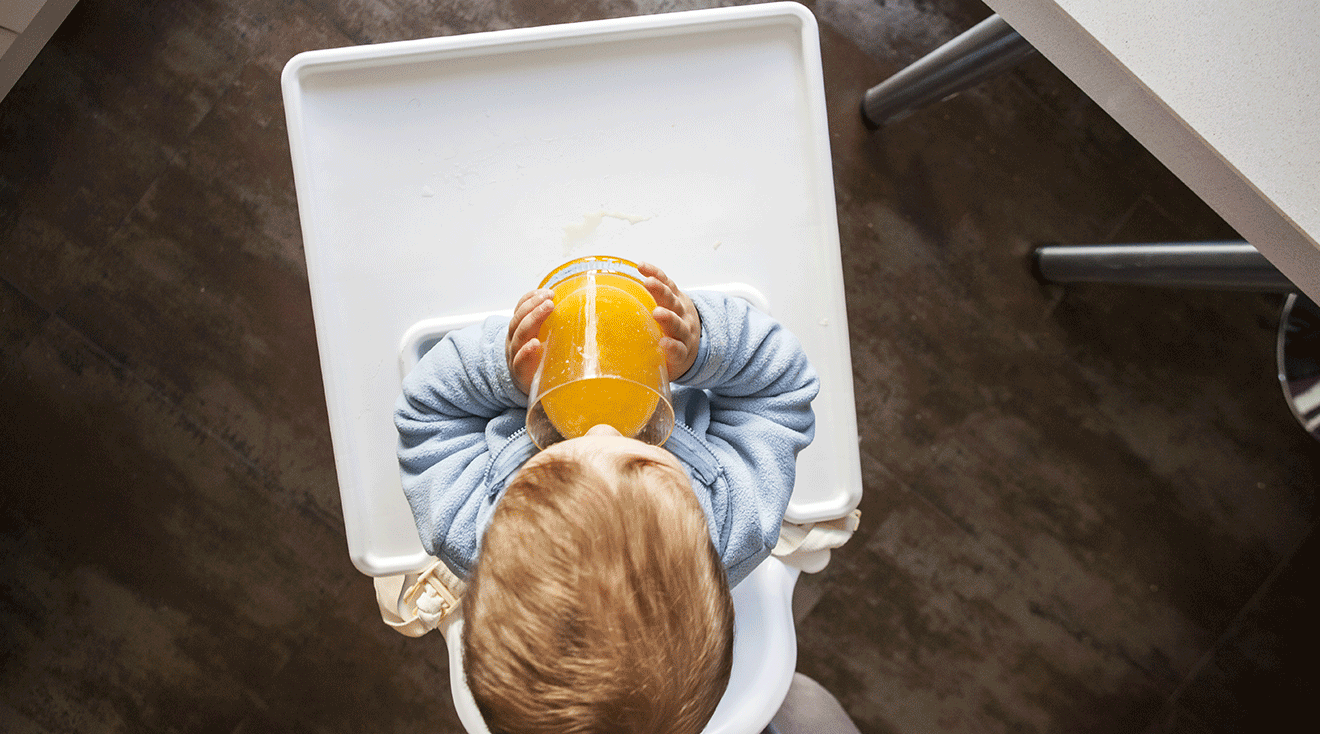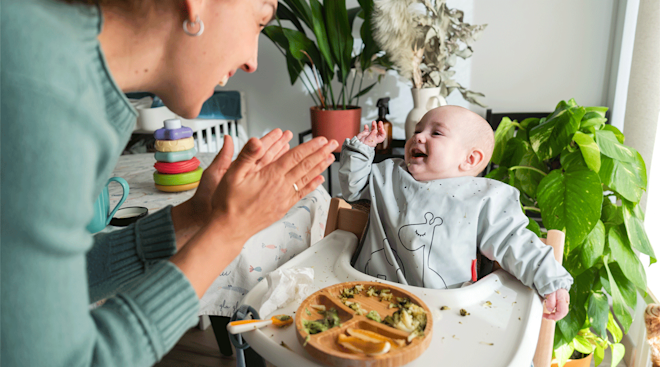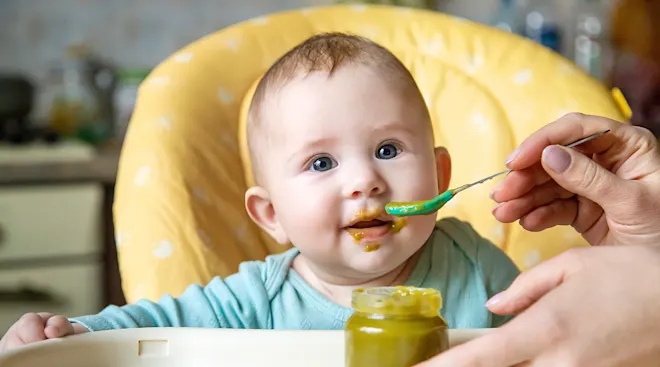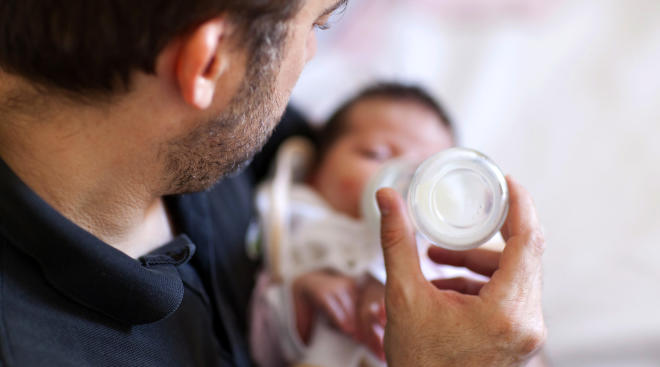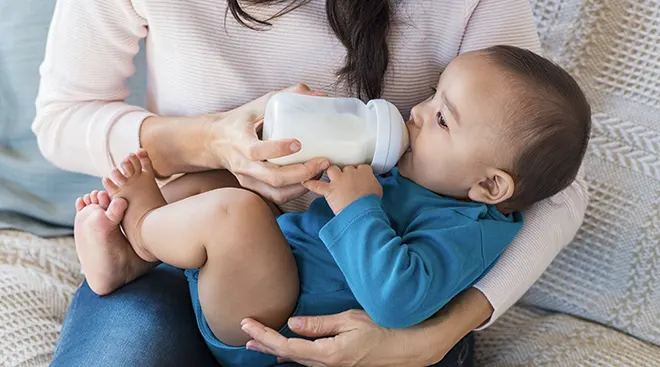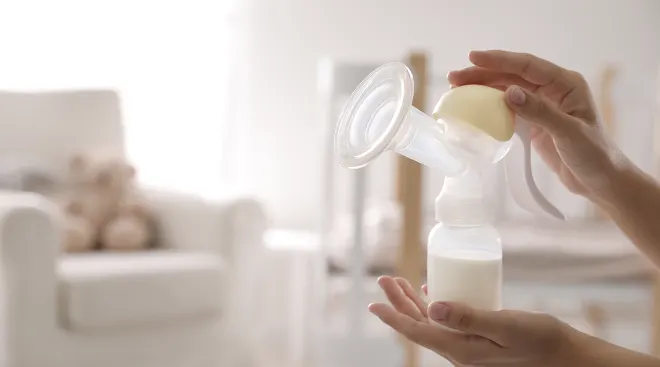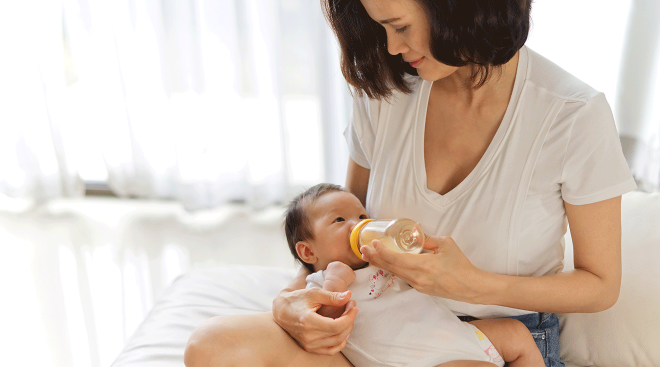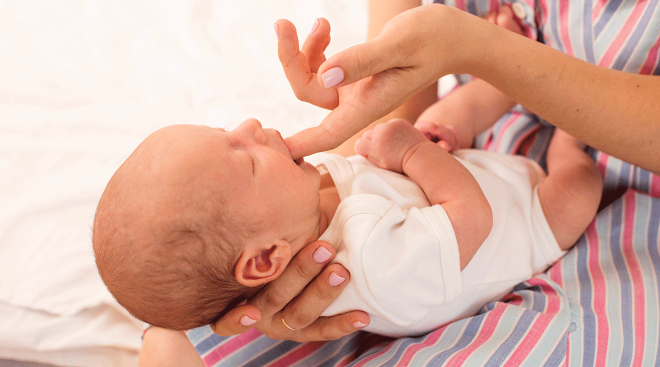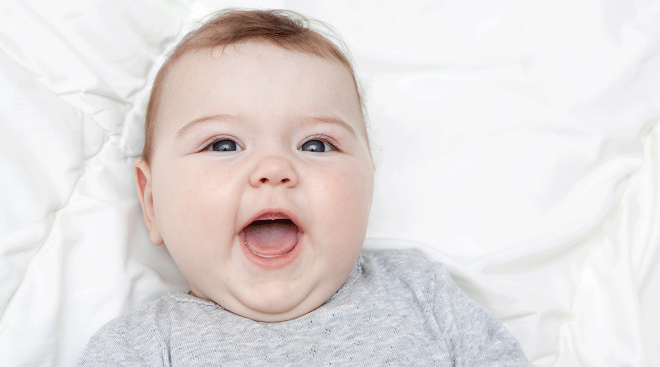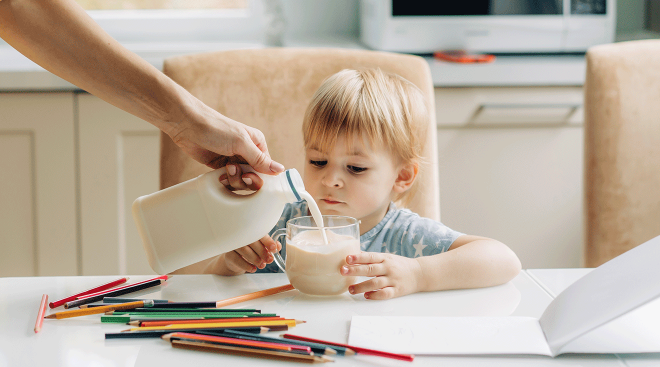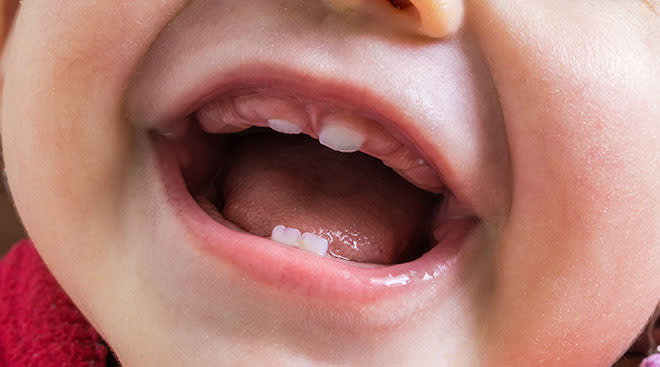When Can Babies Have Juice?
Juice boxes feel like a staple of childhood, so you might be wondering when baby can have a sippy cup full of sweetness. Well—as turns out—the rules around giving baby juice are a bit more complicated that you might have guessed. So when can babies have juice—and is one type better than the next? Pour yourself a glass of juice, and keep reading to learn everything to know about how and when babies can drink fruit juice.
Wondering if and when babies can drink juice? Most experts—including those at the American Academy of Pediatrics (AAP)—note that fruit juice shouldn’t be given to children under the age of one. “Babies have small bellies and offering juice for babies under 12 months can displace fluids—they need [that] space for breast milk or formula,” explains Dahlia Rimmon, MS, RDN, a pediatric dietitian based in St. Louis, Missouri.
So exactly when can babies and toddlers have juice? Rimmon notes it’s usually okay to introduce in moderation after baby’s first birthday, but she recommends “holding off as long as possible, ideally until after their second birthday.” In the meantime, stick to more nutrient-packed options (think: breast milk and formula for infants) and cow’s milk for toddlers.
The reason it’s best to wait as long as possible to give your little one juice? Fruit juice doesn’t have any nutritional benefits for young kids and it can increase the risk of tooth decay, according to the AAP. It can also lead to a preference for sweeter flavors over water, creating unhealthy dietary habits. Ultimately, this may eventually contribute to unhealthy weight gain and obesity later on in life. Instead, the AAP says it’s best to offer whole fruits as a healthier option, which offers more fiber and nutrients.
If you do decide to introduce fruit juice to your toddler after their first birthday, it’s important to do so in moderation. Rimmon recommends limiting the amount to 4 ounces or less, and not offering it every day. “Regularly offering juice doesn’t reinforce healthy drinking habits,” she says. “Regular and excessive juice intake is also associated with poor dental health.”
According to the AAP, kids one to 3 should have no more than 4 ounces of juice daily; 4 to 6 year olds should have no more than 6 ounces of juice daily and kids 7 and older should consume no more than 8 ounces of juice daily.
Juice can be served alongside one of your kiddo’s meals, but you’ll want to offer it in an open or straw cup, rather than a bottle, Rimmon says. Loretta Cody, MD, a board-certified pediatrician based in Connecticut, recommends offering toddlers and young children fruit juice diluted with water, as this will help limit their sugar consumption with each serving (for example, 2 ounces of fruit juice mixed with 2 ounces of water).
How to identify a fruit juice allergy
While fruit juice isn’t considered a standard allergen, it’s possible your child may have an allergy, Rimmon notes. For this reason, as with any food, it’s best to offer a small amount at first to see how they react. According to Cody and Rimmon, some allergic reactions to watch for include:
- Hives
- Itchiness
- Nausea
- Vomiting
- Diarrhea
- Swelling of their lips or tongue
- Shortness of breath or wheezing
- Trouble swallowing
- Sneezing
If your child develops any breathing difficulties, consider it a medical emergency and head to the nearest hospital.
Wondering if there are any other drinks you should avoid giving to young children? According to the AAP, there’s a lengthy list of beverages that aren’t suitable for young children, most of which are sweetened and offer little to no nutritional value. These include:
- Pasteurized fruit juices (especially before the age of one)
- Unpasteurized fruit juices
- Juice and fruit-flavored drinks
- Sodas
- Iced teas
- Sports drinks
- Sweetened waters
- Coffee and tea drinks
- Drinks with low-calorie sweeteners
- Plant milks and non-dairy beverages (before age of one)
- Toddler milks and formulas
- Unpasteurized milk
- Any beverages with added honey (before age one)
According to the AAP, most of these beverages simply aren’t suitable for young children and increase the risk of negative health effects, like obesity and dental erosion. Instead, offer your toddler water at meal times and real fruits over fruit juice to encourage healthy hydration and instill good dietary habits.
Frequently Asked Questions
What’s the best type of juice for babies, toddlers and kids?
Technically, there’s no best type of juice for babies, toddlers or kids; they all lack nutritional value for young children. However, when looking for the best types of juice, it’s important to look at the ingredients. You’ll want to buy an option that’s made with 100 percent pasteurized fruit juice and no added sugars, the experts say.
What are the healthiest drinks for babies and toddlers?
All experts agree that the healthiest drink for babies is breast milk or formula and a few sips of water after 6 months. Rimmon says after age one, your tot can stick with breast milk, transition to unsweetened, calcium-fortified cow’s milk (or soy or pea milk) and increase their water intake.
Should I be diluting the fruit juice given to my toddler?
The biggest drawbacks of fruit juice are its lack of nutritional value and high sugar content. While it’s not necessary to dilute fruit juice, experts agree it does lessen how much sugar a child consumes, so it’s likely a good idea.
Can I give my infant some juice for constipation?
The AAP cautions against offering baby apple juice or any fruit juice as a treatment for dehydration or diarrhea. When it comes to infant constipation, Cody says it's best to check in with your pediatrician before trying baby prune juice or any other fruit juice as a remedy. They'll be able to offer tailored advice based on your child’s age and any other symptoms. That said, Rimmon notes that some pediatricians may recommend caregivers offer a small amount of fruit juice to babies if there’s a “strong clinical indication for it.”
Fruit juice has long been a part of the American diet and many adults still equate juice and juice boxes with fond childhood memories, so it may seem surprising that it’s actually not recommended for babies and toddlers. “Babies, toddlers, kids don’t need juice,” Rimmon reiterates. In the meantime, stick to what’s healthiest for your little one based on their age and individual needs.
Please note: The Bump and the materials and information it contains are not intended to, and do not constitute, medical or other health advice or diagnosis and should not be used as such. You should always consult with a qualified physician or health professional about your specific circumstances.
Plus, More from The Bump:
Loretta Cody, MD, is a board-certified pediatrician based out of Connecticut. She received her medical degree from New York Medical College and completed her residency at Yale New Haven Children’s Hospital.
Dahlia Rimmon, MS, RDN, is a pediatric dietitian based in St. Louis, Missouri. She earned her clinical nutrition degree from New York University and completed her master’s degree in nutritional science at California State University, Long Beach.
Healthy Children (American Academy of Pediatrics), Where We Stand: Fruit Juice for Children, July 2022
American Academy of Pediatrics, Healthy Beverage Quick Reference Guide
Learn how we ensure the accuracy of our content through our editorial and medical review process.
Navigate forward to interact with the calendar and select a date. Press the question mark key to get the keyboard shortcuts for changing dates.

































